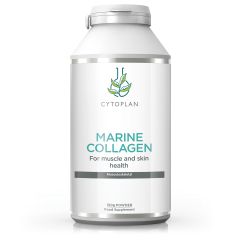Hives and heat rash: how can nutrition help manage these summer skin issues?
When you hear the term “summer skin” you probably think of a glowing, sun kissed complexion – but for many of us the reality is quite different. Sunlight exposure and hot, dry weather can wreak havoc on our skin, causing dryness and redness. The changing conditions can affect your skin barrier function and increased ultraviolet (UV) light exposure from the sun and accompanying oxidative stress can contribute to longer term skin health issues. As we move into the summer months, now is the time to nourish your skin to protect your summer glow.
Let’s have a look at some of the key nutrients that can help to protect your skin this summer:
Collagen is the most abundant protein in the human body and is responsible for structure, strength and stability in the skin. UV exposure can contribute to the breakdown of collagen, and a reduction in collagen level and quality results in wrinkle formation and a loss of firmness and tone. It can also compromise the skin’s barrier, causing dryness.
Supplementing with collagen peptides can support your summer skin in two ways: providing the building blocks of collagen and stimulating the skin’s natural collagen production
UV light is a major environmental stressor for the skin and to help protect against its damaging effects, it is important to build your skin’s defenses from the inside by ensuring you get a wide range of plant antioxidants in your diet. Just some of the phytonutrients that can protect your skin this summer include carotenoids, such as beta carotene and lycopene, found in red, orange and yellow fruits and vegetables. Likewise, flavonoids such as anthocyanins, found in red, purple and blue plant foods can help to safeguard your skin from UV rays. Through “eating a rainbow” you can give your skin the best summer protection.
In the skin, Vitamin C acts as an antioxidant, combatting the free radicals produced by exposure to UV rays. It also plays a role in producing and maintaining collagen, therefore great levels of Vitamin C can help to support the structure of the skin and improve skin tone, texture and hydration.
The omega-3 fatty acids EPA and DHA, as found in oily fish can help to support anti-inflammatory pathways in the body and may reduce the inflammation in the skin caused by exposure to UV light. Omega-3 fatty acids can also support the skin’s natural barrier function, so may help to seal in moisture and keep out irritants, to keep the skin calm and hydrated throughout the summer.
There are many factors that can cause loss of moisture including sun exposure, weather and pollution. Hyaluronic Acid is found naturally in the skin, where it helps to retain moisture and protects against UV damage and taking a supplement of hyaluronic acid can help to increase the levels in the skin.
And let’s not forget the importance of hydration to your skin, particularly in hot weather. When your skin is dehydrated it can become more prone to dryness, irritation and inflammation. The skin contains around 30% water, which can be lost through sweat in the summer sun – so up your water intake through drinking plenty of water and herbal teas, limiting your caffeine and alcohol intake and don’t forget those colourful fruit and vegetables, which are also a great source of water.











